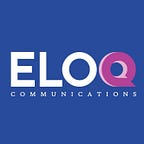Brands and their responses to social issues
Corporate social responsibility (CSR) nowadays does not translate only into products and services offered or large-scale CSR programs. The new generation of consumers requires businesses to respond promptly to major social issues and take action.
Speak up or not?
Amid the peak of the Black Lives Matter (BLM) movement, a one-minute advertisement from Nike attracted massive attention all over the world. Launched just 5 days after George Floyd’s death, the ad captured the audience from the very first seconds with the slogan “For Once, Don’t Do It” written in white on a black background. Although it seems contrary to the brand’s familiar slogan “Just Do it”, the ad is actually consistent in the spirit of anti-racism and inequality that Nike upholds.
Not every brand responded as quickly and drastically as Nike did. Some chose to keep silent, or give their statement in a cautious and discreet manner. In such situation, what is the wisest response to win consumers’ heart?
In order have a satisfactory answer, it is necessary to understand what consumers want from brands. According to a recent survey on Gen Z (born between 1995–2015) consumer behavior conducted by McKinsey in collaboration with Box1824, 70% of respondents said that they tried to buy products from ethical companies; 80% denied to purchase from companies that involved in scandals.
Gen Z has a great influence on their families’ purchasing decisions, and they often act as a trusted consulting source on choosing a brand for their parents. When ethics is becoming the new trend in daily decision making, businesses’ attitude to emerging social issues is one of the criteria for consumers to evaluate corporate ethics.
According to Dr. Clāra Ly-Le — Managing Director of EloQ Communication: “Many companies are afraid to make their remarks on social issues for fear of making a slip of the tongue that could lead to crisis communications. However, silence also translates into “We don’t care” — an attitude that is not welcomed by consumers. The public in the 21st century expects brands to be socially responsible with realistic statements and actions. Timely and appropriate response also contribute to businesses’ crisis management.”
Words must be weighed, not counted
Honesty and transparency are prerequisites when expressing a point of view on any issue. Without these qualities, it is impossible to discuss ethics, and no one would be willing to hear that company’s message.
In addition, there are a few things to take into consideration.
“Taking a stand” means trading off
Social issues are often complicated and raise mixed opinions in the community. Therefore, speaking indecisively can make the audience upset. Once the brand has chosen to take a stand, it must accept that the other party will not be quite happy.
Practicing ethics is not an easy thing. In a civilized society, only few people publicly admit to being racist, however, the BLM movement is still opposed by thousands of people. Likewise, supporting social distancing for the purpose of Covid-19 pandemic prevention will displease those who want to open up the economy. You simply cannot please everyone. If you already choose one side, you must prepare to face backlashes from the opposing group of customers. But in return, your advocates will support the brand stronger, including those who have never used the brand’s products before.
Sticking to your point of view
Businesses’ comments on social issues should be consistent with their prior and latter announcements and actions. The “For Once, Don’t Do It” clip went even more viral when the audience linked it to Nike’s 2018 ad which featured footballer Colin Kaepernick, who became an anti-racist symbol after he protested and refused to stand during the playing of national anthem before the match. In contrast, if any enterprise has ever involved racist scandals but now supports BLM, it would be counter-productive.
Brand should know that consumers are not quick to forget. Google charges no fees on its search engine, and newspapers or rival companies are not afraid to evoke old stories. The McKinsey survey also showed that 80% of respondents remembered at least one business-related scandal or controversy.
Therefore, if brand already slips out an inappropriate message then the crisis must be handled thoroughly. Avoid swimming with the tide if you don’t want your brand to be boycotted by every party. Do you know the story of the bat, which sometimes takes side with the mammals, and sometimes with the birds, then eventually no one accepts it in the herd?
Consistency also needs to be guaranteed at all levels of the business. Consumers won’t distinct the ethical practices of the brand, its mother company, its network of partners and suppliers. Every action of the company must be consistent with its ideal and commitments. And that ideal must be unified among all stakeholders.
Seeking assistance from experts
No one could excel in every field, therefore, it would be a wise approach to seek support from experts. The professional and highly experienced staff at EloQ Communications, along with diversified service packages are always ready to satisfy brand’s consulting requirements.
Giving opinion on heated topics is not an easy task, but it is necessary if the brand want to build a bold, responsible and mature image.
Speaking up or not, what is your choice? The blog article was originally published on EloQ’s blog.
Nhung Do is currently a copywriter at EloQ Communications. She has more than 10 years of experience in writing, teaching, and content creating. Her first book is “Fox fire in the sky — 100 tales about Finland”, which presents her best cultural experience in the hometown of Santa Claus.
